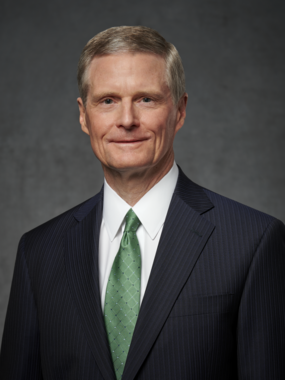The following address was given digitally on October 14, 2020, for the G20 Interfaith Forum, hosted by the Kingdom of Saudi Arabia. Read a summary article of the speech.

d5782df341dcde9fc9b2b5f29dd56dd7ed419690.png
Elder David A. Bednar2020 by Intellectual Reserve, Inc. All rights reserved.I am grateful and honored to participate with you in this G-20 Interfaith Forum. In the face of widespread and growing confusion about the essential role religion plays in our personal and communal lives, this interfaith gathering is more important now than ever. We may come from different religious traditions, but we are united in our commitment to promote understanding and true respect for religion and people of faith.
Governments Often Mistakenly Treat Religion as “Nonessential”
Our Saudi Arabian hosts have addressed many priorities, but it is clear that the COVID-19 pandemic has tragically emerged as the unavoidable, overarching theme. My aim is to highlight some of the most critical lessons that religious voices have been learning.
The ongoing pandemic has demonstrated that some government officials fail to understand how and why religion is fundamental to the lives of billons of people. COVID-19 regulations have often distinguished between “essential” and “nonessential” activities and then treated religious activities as “nonessential.” This completely misconceives how vital religion is to people’s lives.
Governments obviously have a crucial role to play in protecting people from the coronavirus, and I applaud the sincere efforts of government officials around the world to do so. As with secular activities, religious activities should be carefully limited when truly necessary to keep people safe. No one has a right to spread a dangerous virus.
But that is not the end of the matter. How secular officials understand religion and religious people deeply influences how they treat religious institutions and believers in a time of crisis. The deeper and more respectful the understanding, the more legitimate and effective public policy responses can be.
Surely at least part of the crisis of legitimacy in the response to COVID-19 arises from the failure of some policymakers to account properly for the centrality of faith in the lives of believers.
The Centrality of Religious Faith to Believers
For billions of people around the world, religion is the very center of our lives and the core of our identity. Our faith calls upon us to love God above all else. It defines who and what we are, how we understand the meaning of our lives, and how we live each day. It is the source of our strength, consolation, and hope amidst sorrow, travail, and death. Faith traditions are the incubators and shapers of family and community life, creating and sustaining the spiritual ties that link and bind people together. Religion transmits moral and social truths to the next generation. Can anything be more vital?
Our faith is more than just important to our dignity as human beings; it is essential!
Freedom of Religion in a Time of COVID-19
The centrality of faith to human dignity is why international law holds that basic religious freedom is “non-derogable” — in other words, it cannot be taken away or forfeited, even in times of emergency. To deny such freedom is to deny something fundamental to a believer’s soul.
Severing people from their religious communities threatens people’s spiritual, mental, emotional, and physical health. Experts are documenting the rise in depression, physical and emotional abuse, suicide, and other tragedies during times of social lockdown and isolation.
Some have construed calls for sensitivity to religious freedom during the pandemic as cavalier demands to ignore the risks of COVID-19 or to disregard sound public policy. That is not what responsible voices in the faith community seek.
By recognizing religious freedom in a time of COVID-19 and by acknowledging the essential place of religion in people’s lives, governments and policy experts can win allies in a common struggle against not only health risks but other serious risks as well.
Strong connections among family, deeply held religious beliefs, and a community of faith have long been associated with better mental, emotional, and physical health. These critical connections are at risk when blanket bans are issued against religious gatherings.
My call is for respect, accommodation, and cooperation — for creative solutions that mitigate the threat of COVID-19 while not cutting people off from an essential part of their lives. In many instances, the lack of such respect has backfired, creating suspicion toward government and the undermining of its legitimate efforts to control the pandemic.
Choosing to disrespect religion rather than find ways to safely accommodate it has serious consequences. It infringes on the dignity of believers. It harms numerous personal and communal interests. And it diminishes trust in the important efforts of public health officials.
Religion as an Ally in the Fight against COVID-19 — the Dividends of Respect
There is a better way. Religion can be a powerful font of legitimacy and practical assistance in a time of crisis. Many religious leaders already have called on their members to make great sacrifices out of deep love and respect for the safety of others. Acknowledging and respecting those sacrifices and seeking for greater cooperation and accommodation is the way forward.
Misinformation is a major obstacle in a health crisis. Faith communities can debunk rumors, calm fears, and facilitate accurate information.
Many will be fearful of vaccines. Religious leaders can be helpful in the fight against the coronavirus.
Respecting the dignity of religious people pays important dividends. But these powerful opportunities and benefits are possible only if officials acknowledge that, for believers and their faith communities, religion is essential to their identity and very being!
Conclusion
It is my hope and prayer that government officials and faith leaders can collectively respond to COVID-19 in ways that protect both physical and spiritual health.
As I now conclude my message, I joyfully do what for me is essential. I express these thoughts and share these hopes in the name of Him whom I serve, whom I love, and whom I represent, even Jesus Christ. Thank you.